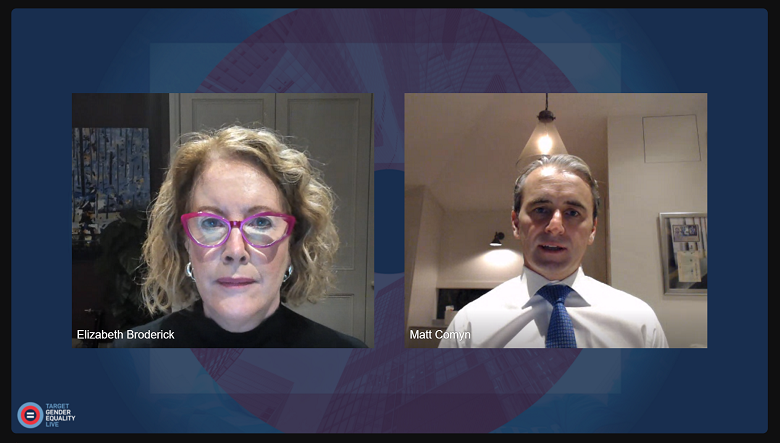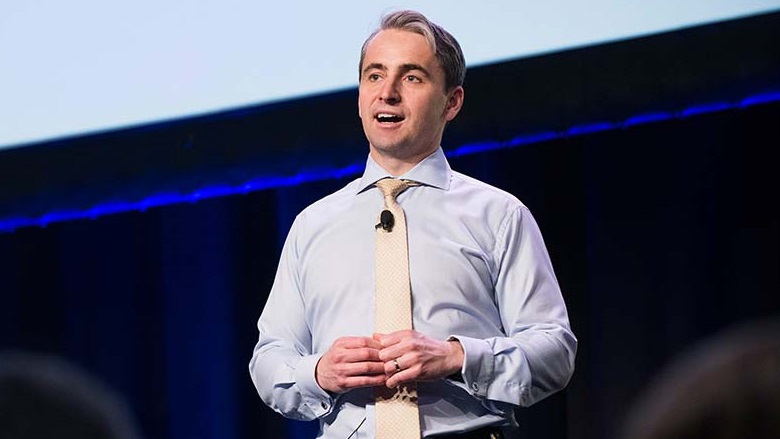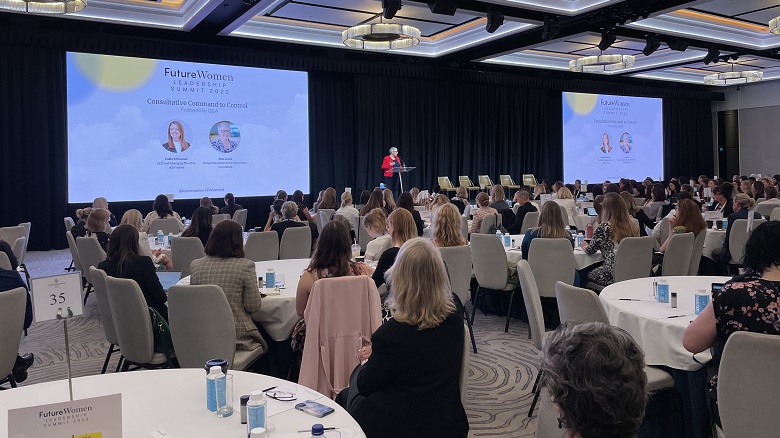“We’ve recently launched the largest ever financial abuse awareness campaign to shine a light on the issue and make it clear that anyone can come to the Commonwealth Bank and seek assistance,” Mr Comyn told attendees of the live event.
The awareness campaign – known as the CommBank Next Chapter Commitment – is supported by significant television, print, digital and radio media, and sees CBA, customers and the community come together to end financial abuse by providing tools, advice and access to support services to help individuals recover from financial abuse and establish financial independence.
In addition to the current awareness campaign, Mr Comyn spoke to some of the other work the bank is doing to reduce financial abuse, including working with academia, and industry partners to understand the size of the issue and what resources victim-survivors need.
“We have a Financial Independence Hub, where we work with specialist external support, we provide one on one coaching, counselling – a lot of strategies to help victim survivors re-establish a new life.
“We also have an internal Community Wellbeing team, which helped more than 22,000 Australians last year access the right support,” he said.
Mr Comyn also highlighted some of the steps the bank was taking to eliminate financial abuse that can occur through payment channels.
In June 2020, the bank introduced a new acceptable use policy, which would allow CBA to suspend or discontinue the banking services of any customer found to be using NetBank or the CommBank app to engage in unlawful, defamatory, harassing or threatening conduct.
Then, in October last year, the bank implemented artificial intelligence (AI) technology and machine learning techniques to detect abusive behaviour in transaction descriptions within the CommBank App and Netbank.
The new model was developed in the CBA AI Labs, and for the first time allows the bank to proactively identify instances of technology-facilitated abuse, a targeted form of domestic and family violence, at scale.
“Our Community Wellbeing team had been dealing with a customer and it was brought to our attention that this customer was being abused by a perpetrator using payment rails.
“What we saw in this particular circumstance, was the perpetrator was sending lots of very small transactions with abusive, threatening, intimidating, unlawful messages. This caused us to then say, well if that is happening in this individual circumstance, is it happening more broadly?
“We then started using a combination of machine learning and AI models to look for different patterns of potential abuse, and we have refined and tuned that algorithm over time. We have used it to help support our customers and also identify, intercept, prevent, and block abusive messages and, in some cases, also work with law enforcement.
“We also had the opportunity to take that to the Australian Banking Association, just as an idea, which was enthusiastically embraced by other financial institutions as well. It has been a really good learning for us. As a large employer providing a number of different services; how might those services be misused to carry out a number of threats and attacks by perpetrators around the country?”
Finally, Mr Comyn said while there is a heightened level of understanding and awareness of financial abuse, there is still work to be done as part of a continued and coordinated community effort.
“I think the magnitude of the issue, both socially, as well as economically, is much better understood. But realistically, it is going to take an enormous and coordinated effort across a number of sectors of the community to eliminate, and certainly make a significant reduction,” he said.




